-
DARPA’s seeking innovative system-level technologies
DARPA’s Tactical Technology Office (TTO) focuses on developing and demonstrating innovative system-level technologies and prototypes that incorporate new and emerging technologies, for the purpose of preserving and extending U.S. military advantages over potential adversaries. To help accomplish these goals and inform potential performers about TTO’s technical objectives, TTO has scheduled its fourth annual Proposers Day for Wednesday and Thursday, 20 and 21 April 2016.
-
-
Water problems in Asia’s future?
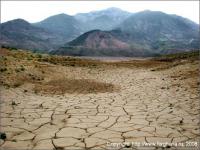
Economic and population growth on top of climate change could lead to serious water shortages across a broad swath of Asia by the year 2050. Having run a large number of simulations of future scenarios, the researchers find that the median amounts of projected growth and climate change in the next thirty-five years in Asia would lead to about one billion more people becoming “water-stressed” compared to today.
-
-
1.4 billion people face severe natural disaster risks in South Asia
New data has revealed that 1.4 billion people in South Asia, or 81 percent of the region’s population, are acutely exposed to at least one type of natural hazard and live in areas considered to have insufficient resources to cope with and rebound from an extreme event. Poor governance, weak infrastructure, and high levels of poverty and corruption amplify the economic and humanitarian losses associated with significant natural hazards events – and these factors will exacerbate the consequences of natural disasters especially in Africa, a continent which hosts eight out of the nine countries most vulnerable to natural hazards.
-
-
Quantifying climate-driven impacts on the Colorado Basin, developing response strategies
The Colorado basin — roughly 11 percent of the United States — directly supports water supply for more than thirty million people, accounts for approximately 15 percent of U.S. crops and livestock, and provides 53 gigawatts of power generation capacity. Climate-driven heat-stress and forest mortality on the Colorado River watershed are expected to reduce river flows basin-wide out to the year 2100.
-
-
Mathematics helps search and rescue ships sail more safely in heavy seas
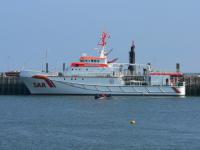
Fast ships deliver all kinds of services in fields such as disaster response, the fight against crime, the provision of supplies for oil and gas platforms, and the transportation of wind farm maintenance personnel. Each year, however, around 100 such ships worldwide are lost or damaged in heavy seas, with around 2,500 casualties in 2013. A unique new computer model built on highly complex mathematics could make it possible to design safer versions of the “fast ships” widely used in search-and-rescue, anti-drugs, anti-piracy, and many other vital offshore operations.
-
-
To avoid multiple climate tipping points, CO2 emissions should be stopped by 2050: Study
To avoid multiple climate tipping points, policy makers need to act now to stop global CO2 emissions by 2050 and meet the Paris Agreement’s goal of limiting global warming to 1.5 °C above pre-industrial levels, a new study has said. The new research shows that existing studies have massively under-valued the risk that ongoing carbon dioxide emissions pose of triggering damaging tipping points.
-
-
2015 made history with record heat, weather extremes: WMO
The year 2015 made history, with shattered temperature records, intense heatwaves, exceptional rainfall, devastating drought, and unusual tropical cyclone activity, according to the World Meteorological Organization. That record-breaking trend has continued in 2016. The global average surface temperature in 2015 broke all previous records by a wide margin, at about 0.76° Celsius above the 1961-1990 average because of a powerful El Niño and human-caused global warming. With 93 percent of excess heat stored in the oceans, ocean heat content down to 2,000 meters also hit a new record.
-
-
Expanding use of recycled water would benefit the environment, human health
More than 1 in 9 people around the world, about 750 million, do not have access to safe, clean drinking water, and the problem is expected to worsen in step with rising greenhouse gas concentrations, population increases and climate change. Researchers found that found that recycled water has great potential for more efficient use in urban settings and to improve the overall resiliency of the water supply.
-
-
February global temperature sets new record for the globe
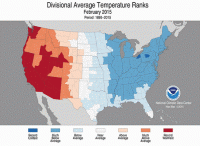
The average temperature for the globe during December-February was 2.03°F above the twentieth century average. This was the highest temperature for December-February in the 1880-2016 record. February 2016 also marks the tenth consecutive month in which a monthly global temperature record has been broken. Record warmth across the globe was aided by a strong El Niño which peaked during the winter.
-
-
Rare earth minerals are in short supply, so researchers seek to extract them from coal
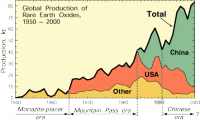
With supplies growing scarce of essential materials needed to make products ranging from smart phones to windmills, researchers are working with academic and industry partners in a $1 million pilot project to recover rare earth elements from coal. The pilot effort is important because rare earth materials, used to create powerful permanent magnets in products as common as computer hard drives to electric motors, are in increasingly short supply, particularly heavy rare earth elements.
-
-
Up to 70 percent of Northeast U.S. coast likely to adapt to rising seas
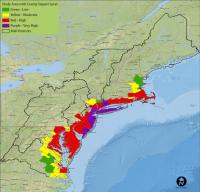
Much of the coast from Maine to Virginia is more likely to change than to simply drown in response to rising seas during the next seventy years or so, according to a new study led by the U.S. Geological Survey. The study is based on a new computer model that captures the potential of the Northeast coast to change, driven by geological and biological forces, in ways that will reshape coastal landscapes.
-
-
Identifying national security threats posed by everyday commercial technologies

For decades, U.S. national security was ensured in large part by a simple advantage: a near-monopoly on access to the most advanced technologies. Increasingly, however, off-the-shelf equipment developed for the transportation, construction, agricultural, and other commercial sectors features highly sophisticated components, which resourceful adversaries can modify or combine to create novel and unanticipated security threats. DARPA’s “Improv” effort asks the innovation community to identify commercial products and processes that could yield unanticipated threats.
-
-
Helping policymakers plan for sea level rise
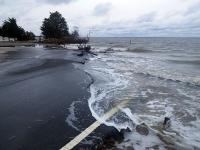
A new study could help protect more than thirteen million American homes that will be threatened by rising sea levels by the end of the century. It is the first major study to assess the risk from rising seas using year 2100 population forecasts for all 319 coastal counties in the continental U.S. Previous impact assessments use current population figures to assess long-term effects of coastal flooding. The data can help policymakers develop practical adaptation strategies for protecting land threatened by frequent and repeated inundation.
-
-
Microwave repairs might annihilate zombie potholes once and for all
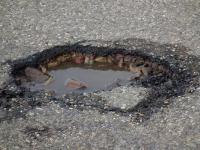
Some potholes are like zombies – they never die. Or at least that’s the perception of much of the driving public, especially as we enter peak pothole season: late winter and early spring. Recurring “zombie” potholes are too often a reflection of the type of method that’s used to patch or “fix” them – many of which are short-lived and only marginally effective. Researchers around the world are working to develop better and longer lasting repair alternatives. Microwave technology is not yet a routine method of repair, and it’s best-suited for potholes in asphalt rather than concrete. But this approach merits further consideration. After all, given our nation’s aging network of roads, zombie potholes will continue to flourish. Microwave repair could be an effective method for keeping them at bay.
-
-
New rule permits STEM graduates to stay in U.S. for 36 months
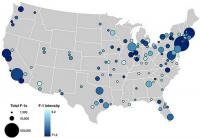
A new rule published by DHS this week allows foreign students in science and technology to extend their stay in the United States under the Optional Practical Training (OPT) program. The new rule will go into effect in May, and it will allow STEM graduates to stay and work in the United States for up to thirty-six months.
-
More headlines
The long view
Are We Ready for a ‘DeepSeek for Bioweapons’?
Anthropic’s Claude 4 is a warning sign: AI that can help build bioweapons is coming, and could be widely available soon. Steven Adler writes that we need to be prepared for the consequences: “like a freely downloadable ‘DeepSeek for bioweapons,’ available across the internet, loadable to the computer of any amateur scientist who wishes to cause mass harm. With Anthropic’s Claude Opus 4 having finally triggered this level of safety risk, the clock is now ticking.”
A Brief History of Federal Funding for Basic Science
Biomedical science in the United States is at a crossroads. For 75 years, the federal government has partnered with academic institutions, fueling discoveries that have transformed medicine and saved lives. Recent moves by the Trump administration — including funding cuts and proposed changes to how research support is allocated — now threaten this legacy.
Bookshelf: Preserving the U.S. Technological Republic
The United States since its founding has always been a technological republic, one whose place in the world has been made possible and advanced by its capacity for innovation. But our present advantage cannot be taken for granted.
Autonomous Weapon Systems: No Human-in-the-Loop Required, and Other Myths Dispelled
“The United States has a strong policy on autonomy in weapon systems that simultaneously enables their development and deployment and ensures they could be used in an effective manner, meaning the systems work as intended, with the same minimal risk of accidents or errors that all weapon systems have,” Michael Horowitz writes.
Ukraine Drone Strikes on Russian Airbase Reveal Any Country Is Vulnerable to the Same Kind of Attack
Air defense systems are built on the assumption that threats come from above and from beyond national borders. But Ukraine’s coordinated drone strike on 1 June on five airbases deep inside Russian territory exposed what happens when states are attacked from below and from within. In low-level airspace, visibility drops, responsibility fragments, and detection tools lose their edge. Drones arrive unannounced, response times lag, coordination breaks.
Shots to the Dome—Why We Can’t Model US Missile Defense on Israel’s “Iron Dome”
Starting an arms race where the costs are stacked against you at a time when debt-to-GDP is approaching an all-time high seems reckless. All in all, the idea behind Golden Dome is still quite undercooked.
